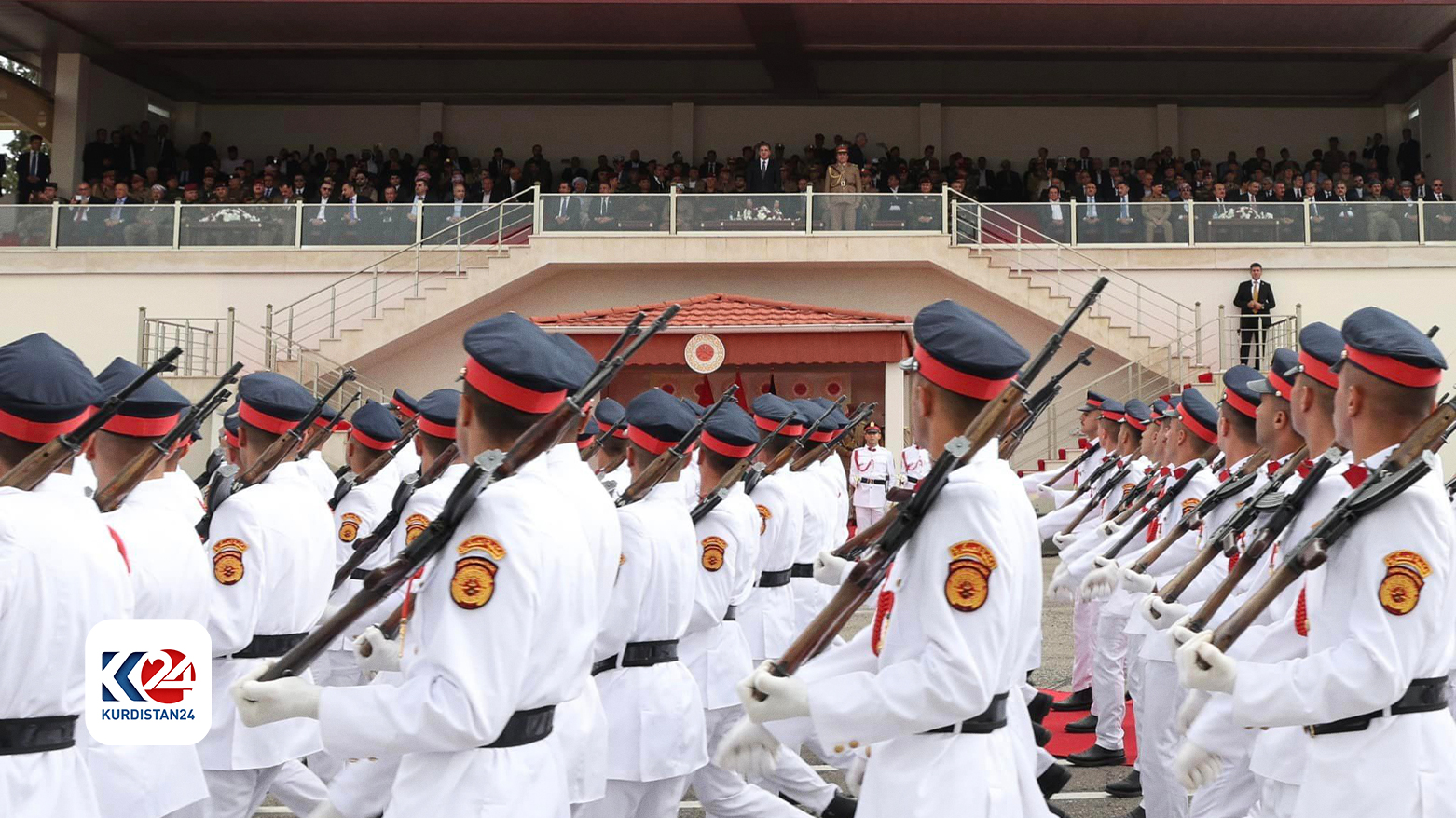Peshmerga pillar of regional stability, deserves modern military support: Forbes Magazine
According to defense expert Paul Iddon's analysis in Forbes Magazine, the Peshmerga's right to receive such armaments is well-founded, both legally and strategically.

ERBIL (Kurdistan24) - The recent US transfer of artillery to Kurdistan Region's Peshmerga forces underscores their legitimate role as a stabilizing force in Iraq and the broader Middle East, despite criticism from some Iraqi officials over the Kurdish forces receiving heavy weaponry.
Kurdistan Region President Nechirvan Barzani recently affirmed this position at a Peshmerga graduation ceremony, stating, "The Peshmerga should not be viewed as a threat; rather, they are the guardians of Iraq, Kurdistan, and humanity." His statement came in response to controversy surrounding the August delivery of US-supplied 105mm M119 howitzers to Kurdish forces.
Read More: President Nechirvan Barzani attended 29th Graduation Ceremony of 2nd military college in Zakho
According to defense expert Paul Iddon's analysis in Forbes Magazine, the Peshmerga's right to receive such armaments is well-founded, both legally and strategically.
The Iraqi Defense Ministry has confirmed that the transfer was previously approved by Baghdad, legitimizing the US delivery and reinforcing the Peshmerga's status as an official component of Iraq's defense forces.
Read More: Khalida Khalil: Peshmerga - guardians of peace, anti-Kurdish rhetoric - fuel for political gain
The Forbes article also underlines that Peshmerga's crucial role in maintaining regional stability was prominently demonstrated during the ISIS crisis of 2014 and stresses that when the militant group threatened to overrun northern Iraq after the collapse of Iraqi Army positions, the Peshmerga emerged as a critical bulwark against extremist expansion.
"If it wasn't for the Peshmerga, ISIS could well have overrun Kirkuk, its oilfields, and all those disputed territories," Iddon writes, highlighting the force's vital contribution to regional security.
The Forbes article also argues that despite Peshmerga’s proven track record, the Peshmerga's defensive capabilities remain limited compared to other armed groups operating in Iraq.
The article also draws comparison between Peshmerga, a long-held trusted ally to the International Coalitions, and the other militia groups, often than not backed by Iran.
The Forbes article highlights that while Iran-backed militias have acquired sophisticated weaponry including drones and ballistic missiles - sometimes used in ways that risk drawing Iraq into broader regional conflicts - the Peshmerga continues to operate with relatively modest equipment.
Recent years have shown the wisdom of maintaining a well-equipped Peshmerga force.
The Kurdish forces are currently collaborating with the Iraqi Army to address security gaps in disputed territories that ISIS remnants have exploited. This cooperation demonstrates how a properly armed Peshmerga enhances Iraq's overall security architecture rather than undermining it.
Iddon argues that Baghdad's occasional resistance to arming the Peshmerga is counterproductive to Iraq's national interests. The Kurdish forces require adequate defensive capabilities, including drones and air defense systems, to protect critical infrastructure such as the Khor Mor gas field, which benefits both Kurdistan Region and federal Iraq.
Read More: Security sources confirm attack on Khor Mor gas field from within Iraq
"Washington's willingness time and again to provide full transparency on what exactly it's supplying Erbil leaves Baghdad with little justification to halt future transfers of weaponry required to combat specific threats," Iddon notes, emphasizing the legitimate and transparent nature of US military support to Kurdish forces.
The recent M119 howitzer transfer, while modest in scope, represents an important recognition of the Peshmerga's legitimate defense needs.
Read More: US delivers heavy weapons to Peshmerga forces in Kurdistan Region
As Iraq moves to acquire more sophisticated weapons like French-made Caesar howitzers, ensuring the Peshmerga maintains adequate defensive capabilities becomes increasingly important for maintaining the region's delicate security balance.
The Peshmerga's proven history of defending not just Kurdistan Region but Iraq as a whole, combined with their ongoing cooperation with Iraqi security forces, reinforces their status as a legitimate recipient of international military support.
As Iddon concludes, a well-armed Peshmerga force serves not only Kurdish interests but contributes significantly to Iraq's national security and regional stability.